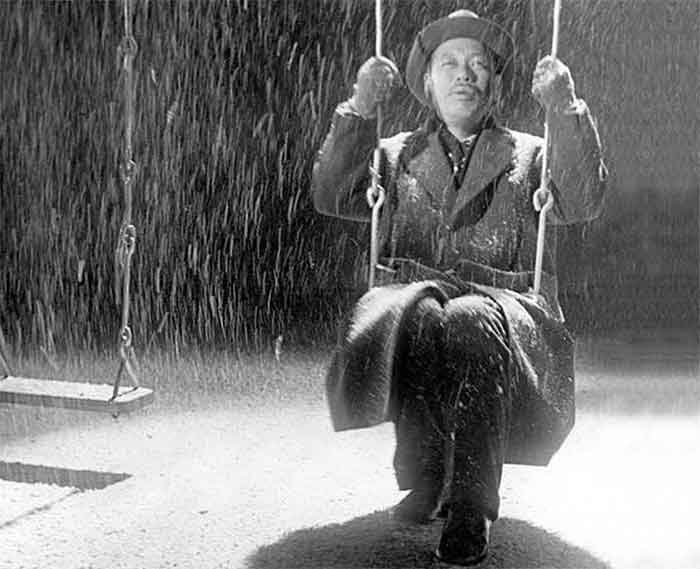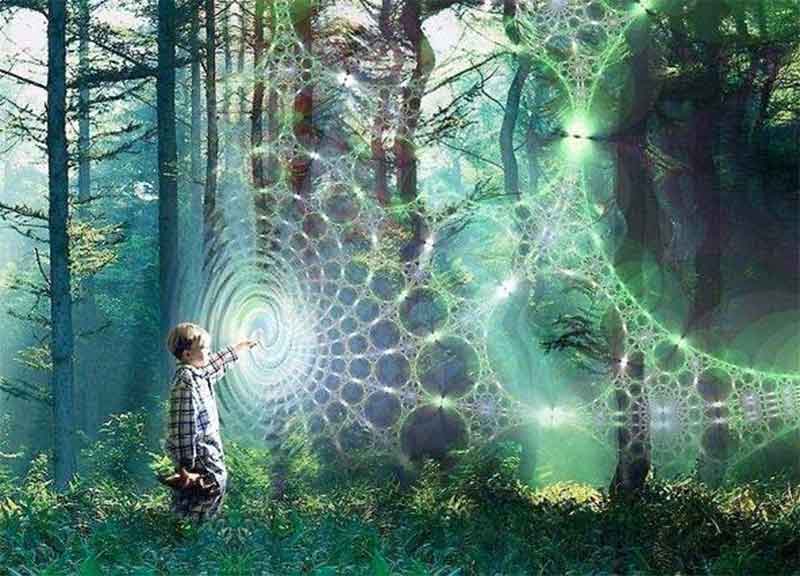
Akira Kurosawa (1910 – 1998), was a Japanese filmmaker and painter who directed 30 films in a career spanning 57 years. He is regarded as one of the most important and influential film-makers in the history of cinema.
Ikiru (‘To Live’) is a 1952 Japanese film directed by Akira Kurosawa. The film examines the struggles of a terminally ill Tokyo bureaucrat and his final quest for meaning. The major themes of the film include learning how to live, the inefficiency of bureaucracy and decaying family life in Japan. The film has received widespread critical acclaim, and in Japan won awards for Best Film at the Kinema Junpo and Mainichi Film Awards. Anand, a 1971 Hindi film, was loosely inspired by Ikiru.
The film begins with a photograph of an X-Ray and says that it belongs to Kanji Watanabe. He has stomach cancer and less than a year to live. But he doesn’t know it therefore he is a very boring man. He has worked in the same monotonous bureaucratic position for thirty years and is near his retirement. His wife is dead and his son and daughter-in-law, who live with him, seem to care mainly about Watanabe’s pension and their future inheritance. At work, he’s a party to constant bureaucratic inaction. In one case, a group of parents are seemingly endlessly referred to one department after another when they want a cesspool cleared out and replaced by a playground.
After learning he has stomach cancer and less than a year to live, Watanabe attempts to come to terms with his impending death. He plans to tell his son about the cancer, but when he comes home and sitting in the dark, he overhears his son and daughter-in-law discussing about his pension, death and inheritance; he decides against it. He then tries to find escape in the pleasures of Tokyo’s nightlife, guided by an eccentric novelist whom he has just met. In a nightclub, Watanabe requests a song from the piano player, and sings ‘Gondola no Uta’ with great sadness. His singing greatly affects those watching him. After one night submerged in the nightlife, he realizes this is not the solution.
The following day, Watanabe encounters a young female subordinate, Toyo, who needs his signature on her resignation. He takes comfort in observing her joyous love of life and enthusiasm and tries to spend as much time as possible with her. She eventually becomes suspicious of his intentions and grows weary of him. After convincing her to join him for the last time, he opens up and asks for the secret to her love of life. She says that she does not know, but that she found happiness in her new job making toys, which makes her feel like she is playing with all the children of Japan. Inspired by her, Watanabe realizes that it is not too late for him to do something significant. Like Toyo, he wants to make something, but is unsure what he can do within the city bureaucracy until he remembers the lobbying for a playground. He surprises everyone by returning to work after a long absence, and begins pushing for a playground despite concerns he is intruding on the jurisdiction of other departments. He goes about it with great patience and humility and ultimately succeeds.
Watanabe dies, and at his wake, his former co-workers gather, after the opening of the playground, and try to figure out what caused such a dramatic change in his behavior. His transformation from a listless bureaucrat to a passionate advocate puzzles them. As the co-workers drink, they slowly realize that Watanabe must have known he was dying, even when his son denies this, as he was unaware of his father’s condition. They also hear from a witness that in the last few moments in Watanabe’s life, late at night, he sat on the swing at the park he built. As the snow fell, he sang “Gondola no Uta”. The bureaucrats vow to live their lives with the same dedication and passion as he did. But back at work, they lack the courage of their newfound conviction. 1
The Current Spate of Resignation among Professionals
It is easy to see the relevance of this film today. The present industrial/capitalist society is terminally ill. Most knowledgeable people give it up to 2030. The symptoms appeared in 2008 with the financial meltdown and the alternative movements gained strength. Awareness about global warming, ecological disasters, resource depletion (end of fossil fuel era), growing inequality and nationwide protests began. Every year this has gained strength and the current pandemic helped it to gather momentum. The current spate of resignation is just one such response. Even here also a trickle began in 2008 and now it has become a stream if not a river!
Like our hero, Kanji Watanabe, in the film people at first are confused as to what to do. Like him many want become reckless consumerists. On line work also helps people to have combine holidays and work. Hence in spite of the pandemic and travel restrictions people are mindlessly going on holidays and partying. And like him they are slowly finding out that this is no solution.
Indeed where is the solution? We will restrict to India only although all over the world alternatives are emerging. People are attracted to land and permaculture and organic farming is gaining popularity. Vikalp Sangam has a map of India where hundreds of alternative are emerging. The network of Ecologise Farms and Transition India in South India has its own small following. Alternative ‘green’ schools are coming up everywhere. MNEREGA unions and village Panchayats (particularly women headed Pnachayats) are taking up meaningful green projects. Urban municipal workers’ unions are getting urban waste disposal programmes. The list is endless. Not all are highly successful nor they yet significantly big. But the trend is clear.
In India these ‘burn out’ professionals are increasingly looking around for all this. In the past the delved into this or that and many hastily went back to the mainstream or a more viable halfway solution. Now there is no going back. Collapse is already here. Collapse yourself before the rush begins!
In such a scenario viewing the film Ikuru can be very inspiring and satisfying!
Reference
- Mainly from Wikipedia, slightly edited by the present author. I have also viewed the film many times.
T. Vijayendra (1943- ) was born in Mysore, grew in Indore and went to IIT Kharagpur to get a B. Tech. in Electronics (1966). After a year’s stint at the Saha Institute of Nuclear Physics, Kolkata, he got drawn into the whirlwind times of the late 60s. Since then, he has always been some kind of political-social activist. His brief for himself is the education of Left wing cadres and so he almost exclusively publishes in the Left wing journal Frontier, published from Kolkata. For the last nine years, he has been active in the field of ‘Peak Oil’ and is a founder member of Peak Oil India and Ecologise. Since 2015 he has been involved in Ecologise! Camps and in 2016 he initiated Ecologise Hyderabad. He divides his time between an organic farm at the foothills of Western Ghats, watching birds, writing fiction and Hyderabad. He has published a book dealing with resource depletions, three books of essays, two collections of short stories, a novella and an autobiography. Vijayendra has been a ‘dedicated’ cyclist all his life, meaning, he neither took a driving licence nor did he ever drive a fossil fuel based vehicle. Email: [email protected]
















































